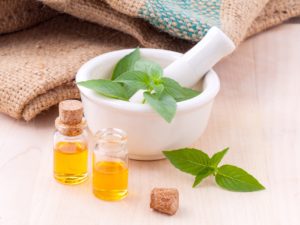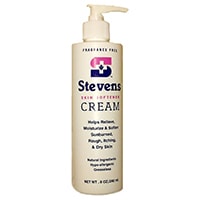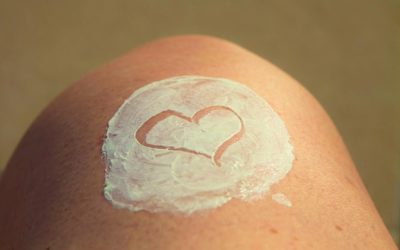10 Steps to Psoriasis Secrets and Solutions

We are all different, and the key to your quest for psoriasis solutions is – a willingness to try various treatments until you find what works best for you. Yes, You can be helped, but it depends on how much time and effort you are willing to put into it. I trust that you will find the following guidelines, helpful and informative.
Psoriasis is manifested by silvery, scaly patches that may appear anywhere on the body, but are most common on the scalp, ears, arms, legs, knees, elbows and back. It may or may not be itchy, and follows a pattern of periodic flare-ups followed by healing. Even toes and fingernails sometimes lose their luster, and develop ridges and pits. Psoriasis is sometimes associated with a form of arthritis that is difficult to treat, called psoriatic arthritis.
Normally your skin cells mature and shed every 28 to 30 days. In psoriasis, new skin develops seven to ten times faster than normal. Because your skin cells can’t shed fast enough, they pile up, forming raised, scaly plaques. As the dead cells are pushed farther from the surface, they form silvery white scales over the plaques.
The exact cause of psoriasis is still not known, but certain things act as triggers, and set the stage for a flare-up. Among them are food allergies, nutritional deficiencies, climate changes, damage to the skin from dryness, local injury or sunburn, reaction to certain drugs, infections, build up of toxins in an unhealthy colon and emotional stress.
Psoriasis solutions require a comprehensive and consistent approach. Also remember that any program may take months to show improvement, so be patient. Continue treatment even during times of remission when no lesions are visible. You see, the problem is still there, just waiting for a trigger. The following steps will help you not only prevent psoriasis attacks, but minimize their severity. Here’s what you do…
1. A diet that’s low in saturated fat, and low in animal products, has an ameliorating effect on psoriasis. Eat a diet that is 50 percent raw foods, including plenty of fruits, vegetables sprouts and grains. Also eat seafood that’s high in omega-3-fatty acids such as salmon, sardines, mackerel and herring. Citrus may aggravate psoriasis in some individuals. It is not only a good idea to check for food allergies, but follow a 4-day rotation diet. That is, don’t eat any one food more often than once every four days. Avoid red meat or dairy products.
2. Arachnidonic acid is a natural substance that aggravates the inflammatory response in psoriasis lesions, making them swollen and red. Taking Evening Primrose Oil interferes with the production and storage of arachnidonic acid. Take 500mg daily. NOTE: Women suffering from breast cancer should limit their use of evening primrose oil. Other good sources of the essential fatty acids are flaxseed oil and salmon oil.
3. Vitamin B complex is needed for healthy skin. Use a high-stress, yeast-free formula. Take 50mg three times daily with meals. You will want to take extras of the following B vitamins as well. Vitamin B1 (thiamine) – important for proper circulation and healthy skin. Take 50mg three times daily. Vitamin B6 (pyridoxine) – deficiency has been linked to skin disorders. Take 50mg three times daily. Vitamin B5 (pantothenic acid) – aids in proper adrenal function. Take 100mg three times daily. Vitamin B12 – is important in cell formation and in longevity of the cell. Take 2000mcg daily. Use a sublingual form.
4. Other vitamins, minerals and supplements that are important are:- Vitamin A – important for healthy skin and nails. Take 75 IU daily for two weeks, then 50 IU daily for two months, then 25 IU daily. Do not take more than 10 IU daily if you are pregnant. Vitamin C with Bioflavenoids – important in boosting your immune system, and forming collagen and skin tissue. Take 2,000mg four times daily. Vitamin E – is an antioxidant that neutralizes free radicals that damage the skin. Take 400 to 1,200 IU daily. Zinc – important in protein metabolism, and proteins are needed for healing. Take 50mg of zinc daily. Folic acid deficiency has been linked to psoriasis. Take 400mcg daily. Glutathione may inhibit the growth of psoriatic cells. Take 500mg twice daily on an empty stomach.
5. Shark cartilage – stops the spread of psoriasis by inhibiting the growth of blood vessels. It may take three or more months to show results. The first to resolve is the itching and scaling, followed by gradual fading of the redness. Take 1gm per 15lb of body weight in three divided doses, daily.
6. For mild cases of psoriasis, sunlight alone may be all that’s necessary. Ultraviolet rays slow down cellular division in the skin.
Expose your skin regularly to moderate amounts of sunlight. To prevent sunburn, which can actually aggravate your condition, avoid exposure to the sun between the hours of 10 am and 2 pm, especially during the summer months.
7. You should be aware that certain drugs trigger flare-ups in some people and therefore should be avoided. Some of them are propranolol hydrochloride and other beta-blockers, quinidine gluconate, lithium, antimalarial medications, and even alcohol.
Detoxification programs are helpful with psoriasis as they rid your body of potential triggering toxins. Include the following steps in your program…
8. Milk thistle extract – increases the flow of bile, and cleanses your liver. This is important in keeping your blood clean. Take 300 mgs three times daily.
9. Fiber is important in maintaining a healthy colon. The fiber binds to colon toxins, and aids in their elimination. In addition to foods rich in fiber such as raw fruits and vegetables, and whole grain breads and cereals, take psyllium seeds daily. Mix with water or juice and drink immediately.
10. Moisturize – as skin prone to psoriasis tends to be dry. Moisturizing is particularly important during the winter months, when psoriasis tends to flare up because of the dry, cold air.
Many with psoriasis find Stevens Skin Softener Cream (17 moisturizers, antioxidants and nutrients) effective in relieving their dry skin, and helping the psoriatic lesions to fade, thus minimizing the continuing embarrassment these lesions cause. For just a small cost for shipping and handling, you can try Stevens Skin Softener Cream Absolutely FREE, and see for yourself if it will do the same for you. Click here to try Stevens Cream.
As mentioned above, there is no cure for psoriasis. Treatment is designed to prevent or minimize flare-ups, and should be continued even during remissions. To stay current, visit the National Psoriasis Foundation as they are always available to answer your questions and assist you in any manner.
Important Message – This report is intended as an educational tool to acquaint you with alternative methods for managing your problem. Many of the suggestions have not been approved by any government or regulatory agency. Therefore, this report should not be substituted for the advice and treatment of your physician or other licensed health care provider, but rather should be used in conjunction with professional care. If pregnant, you are especially urged to consult your physician before using any suggestions. You must take full responsibility for your health and how you use this information. The author expressly disclaims any responsibility for any adverse effects resulting from your use of the above information.
The entire contents of this report is copyrighted © 2002-2024 by Unique Enterprises, and is made available to you compliments of the “Dry Skin Relief Center“. You’re welcome to share it freely with family, friends and acquaintances who could benefit from this information or post it on your site, as long as you maintain this acknowledgment as part of the complete report and leave all links unchanged. Thank you!

Avoid These Dry Skin Mistakes
Your Skin is the largest organ "on" your body. In fact, that is the first thing people notice about you. That is why, from time immemorial, the care of the skin has been the preoccupation of many. Your skin is 70% water, and many skin problems are associated with dry...
Diabetic Dry Skin Solutions
10 Steps to Diabetic Dry Skin Solutions Diabetes causes dry skin. Your skin becomes dehydrated because the body is using much of its water making urine to remove excess glucose from the blood. Also fluctuating blood glucose levels cause many changes in the skin. As a...
Itchy Skin Care
Thank you for visiting Itchy Skin Care. Here you will find out some interesting things about Itchy Skin and what Stevens Skin Softener Cream can do for you. Itchy skin is irritating, both physically and emotionally. I don't care whether you're a teenager or an adult,...
Dry Skin Tips
Thank you for visiting Skin Care Tips. Here you will find out some interesting things about your skin, and how to take care of it. Be sure to send for my Free E-Mailed Reports. Among the things you will find out are: 1. What causes dry skin. 2. How to prevent dry...





